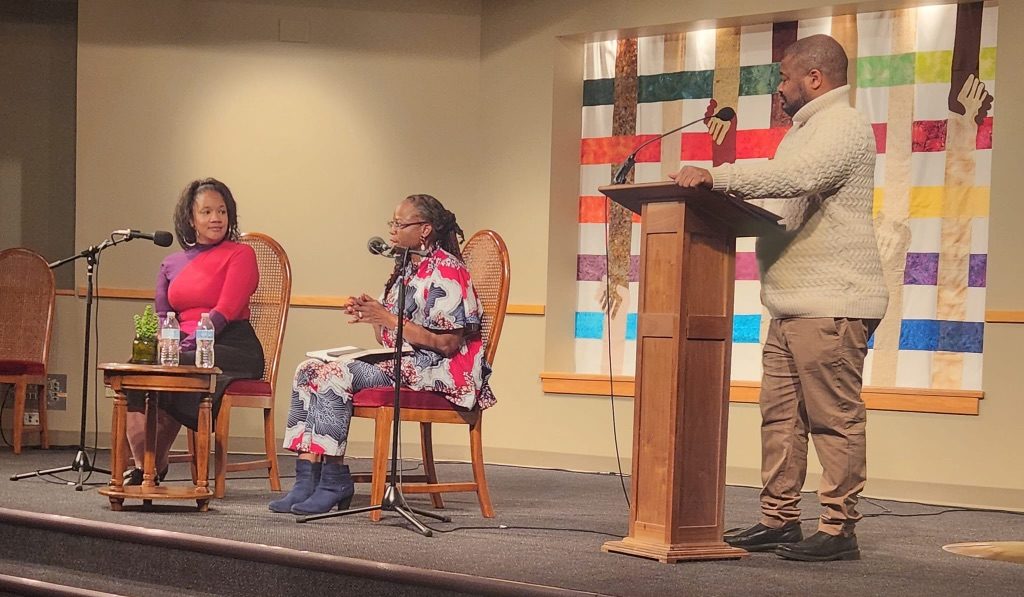Jeffrey Trask is a busy man. After working as the Mercy and Justice Pastor of New Covenant Fellowship from 2001 to 2012, he founded the Champaign County Christian Health Center (CCCHC) in 2003, which provides free medical, dental, and mental healthcare to the uninsured, underinsured, and people who don’t have access to care. After receiving his PhD in Community Health from the University of Illinois, he worked as a professor at various universities and is still an adjunct professor at the U of I and Tulane University. He is currently working full time at CCCHC, teaching as an adjunct pastor at New Covenant Fellowship, and serving in several volunteer capacities including Board Chair for the Illinois Association of Free and Charitable Clinics, Treasurer for the Rev. Dr. Martin Luther King Jr. Advocacy for Justice Committee, Chair of the NCF Reparations Committee, and co-leader of the Champaign Urbana Reparations Coalition. Phew!
I wanted to learn more about the newly founded Champaign Urbana Reparations Coalition and Trask was kind enough to answer my questions about it.
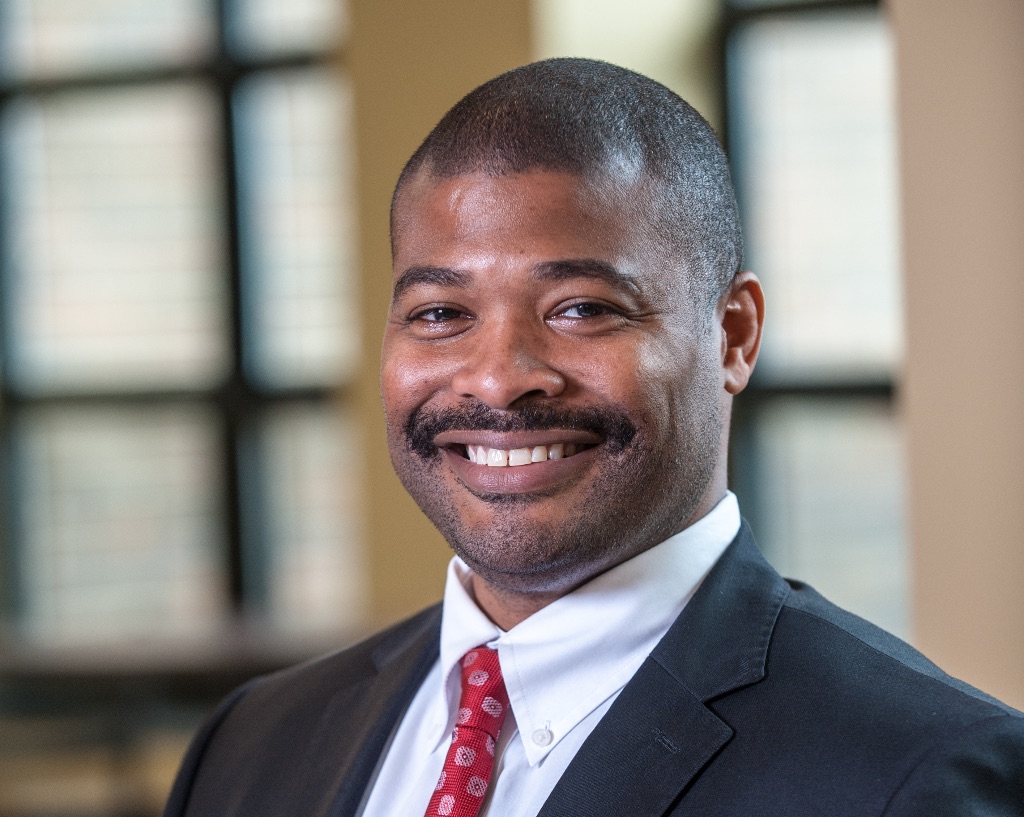
This interview has been edited for length and clarity.
Smile Politely: Can you tell me about the Champaign Urbana Reparations Coalition (CURC) and how you came to be a part of it?
Jeffrey Trask: The CURC is an outgrowth of New Covenant’s Reparations Committee, which was designed to have three levels of impact concerning reparations: church/organizational, community, and political. The NCF Reparations Committee focused on educating the congregation through monthly teachings centered around racial justice, African American history, and reparations in addition to seminars, film screenings, and inviting special guests to talk about racial justice topics. After a few months, we started the community-focused level by inviting various faith leaders. We established our first meeting in May 2023 and meet every third Thursday at New Covenant.
In the months since we started, we created the name Champaign Urbana Reparation Coalition, established an informal structure, and built a general philosophy about reparations. The philosophy includes three main aspects: Education, Acknowledgement, and Reparations. Education is vital as many people have many different ways of defining reparations, and our group feels it is vital for people to learn about the historical and contemporary trauma inflicted upon African Americans. Acknowledgement is key because it links the historical and current oppression to the reparations, otherwise, support may be the same as any other good cause or program. Acknowledgement in recognizing specific harms perpetrated against African Americans is vital to understanding the call for reparations. And finally, there are the reparations, as without a meaningful response through allocating resources to restore and repair wrongdoings, it is just talk. All three aspects are vital.
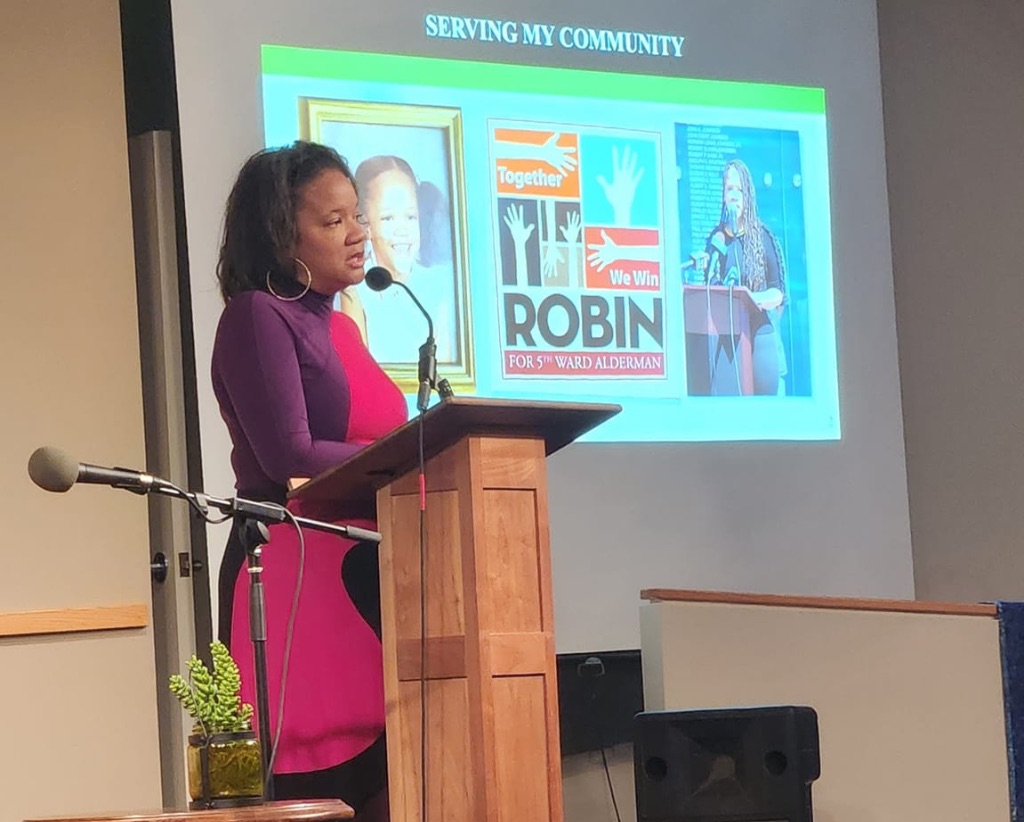
SP: You hosted Robin Rue Simmons and Carol Ammons at the recent Reparations in Action. What was the best part of this event?
Trask: Oh wow! I do not think I can name one, so I’ll name several. We had two guest speakers, Robin Rue Simmons from Evanston, Illinois, who has led the country’s only government (city, state, or federal) to provide reparations to African Americans. The second was State Representative Carol Ammons, a highly committed and regarded local politician who has fought for reparations and the well-being of her constituents for many years. Both did an excellent job; they were passionate, informative, insightful, and fun throughout the night.
Seeing the building filled to the brim with city and county officials, organizational leaders, academics, faith leaders and their church members, our Champaign police chief, and Champaign County residents was a sight to see. It was wonderful to see the diversity and genuine interest in this important topic.
Our CURC team and New Covenant staff and volunteers making sure everything ran smoothly and effectively, from ensuring our online media presence was working to providing snacks and water for the attendees.
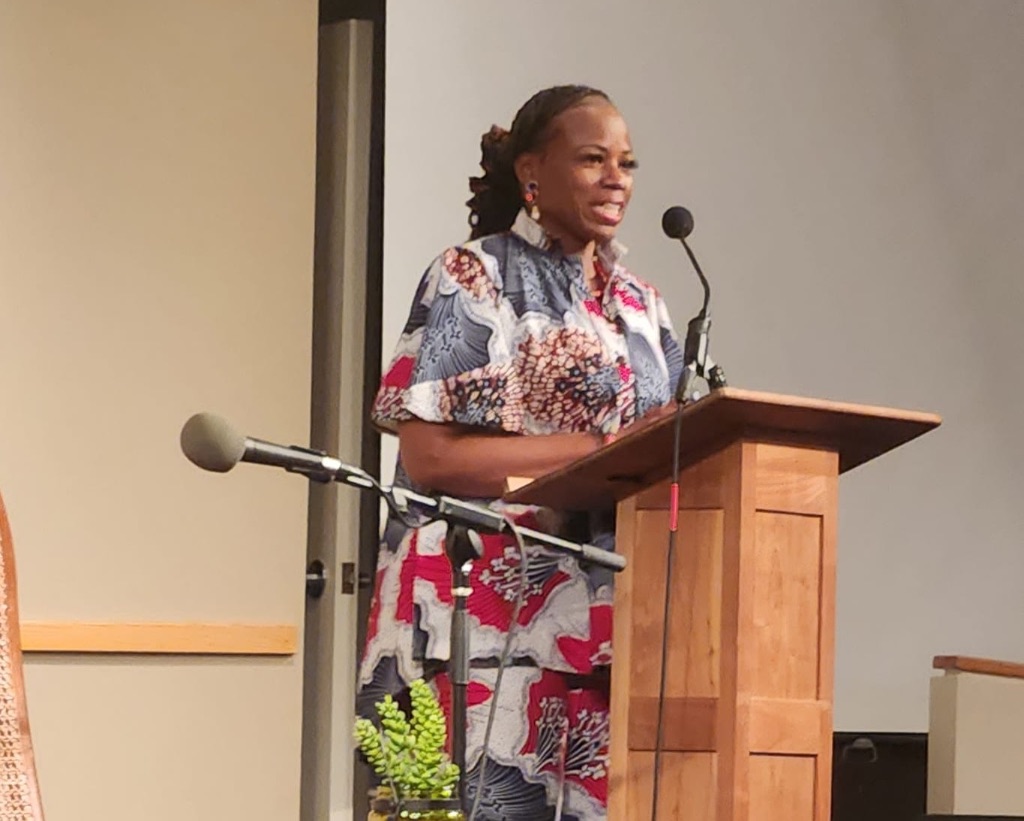
SP: Why are events like Reparations in Action so important?
Trask: These kinds of events are critical in providing information and educating all of us about reparations. In this particular event, we heard how Ms. Simmons overcame many obstacles to get the city of Evanston to dedicate ten million dollars towards reparations a few short years ago, and how she managed to get another ten million dollars allocated recently. In Evanston, they are using the reparation dollars to provide residents $25,000 that can go towards mortgage payments/payoffs, house repairs, rent, or (more recently), a cash payment. She provided a detailed history and process on how her community became and still remains the only governmental entity paying reparations to African Americans — in this case for past discriminatory practices in housing.
These events are also critical to build support around our state, county, and city officials, who have been or will start to promote reparations in their respective political positions.
Additionally, these types of events build community support in general for reparations and strengthen efforts of CURC and other groups to bring forth reparations to African Americans in Champaign County.
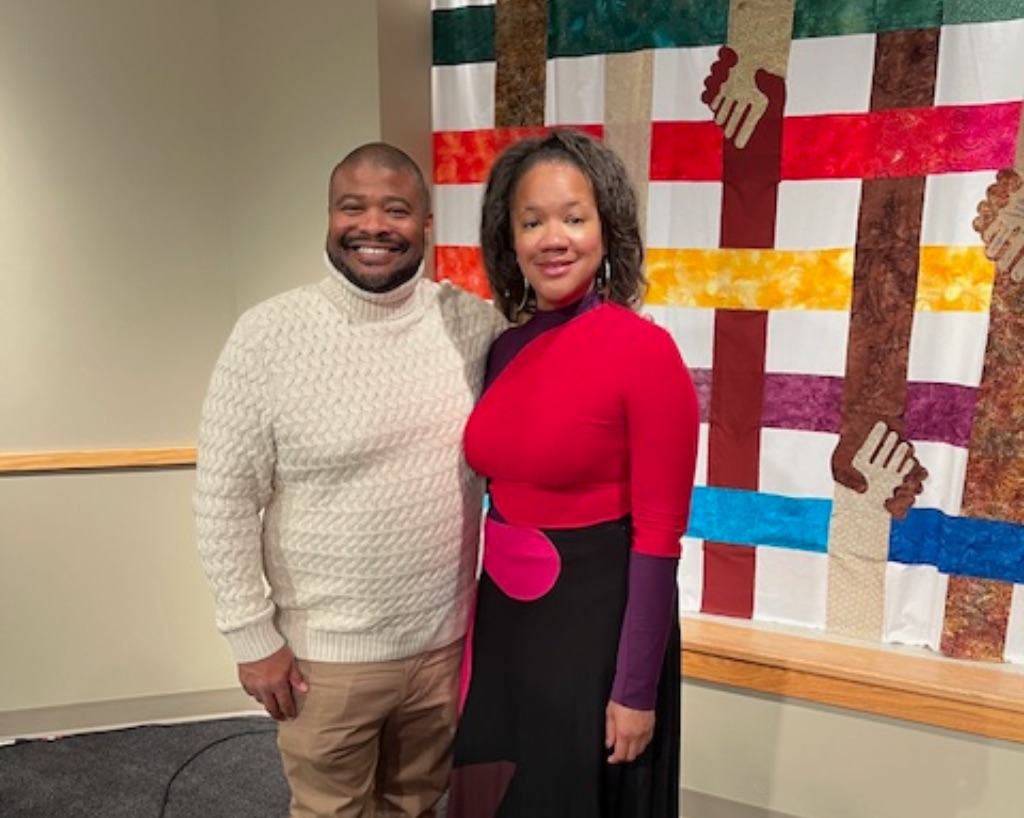
SP: Who or what organizations are role models for CURC?
Trask: Robin Rue Simmons is a key role model for CURC in addition to other entities, such as universities, churches/denominations, and individuals who have dedicated and disbursed reparations (in various forms) to African Americans. We also learn from historical and international efforts of restoration, restitution, and reparations.
SP: What is the biggest misconception about your work?
Trask: I mentioned at the event that there are a couple of paradigms that need shifting when discussing reparations. One is that reparations only help African Americans. The fact is that when we strengthen and provide reparations for oppressed communities, everyone wins. Another paradigm shift is that reparations is something extra on your plate instead of being a vital part of your main course. If we prioritize reparations as we should, it would be a regular budget item on every and any institution’s, government entity’s, and individual’s budgets.
Additionally, it is important for people to understand that no one has this completely figured out. We are all learning along the way. That is another reason why our event and those we hold in the future are vital.
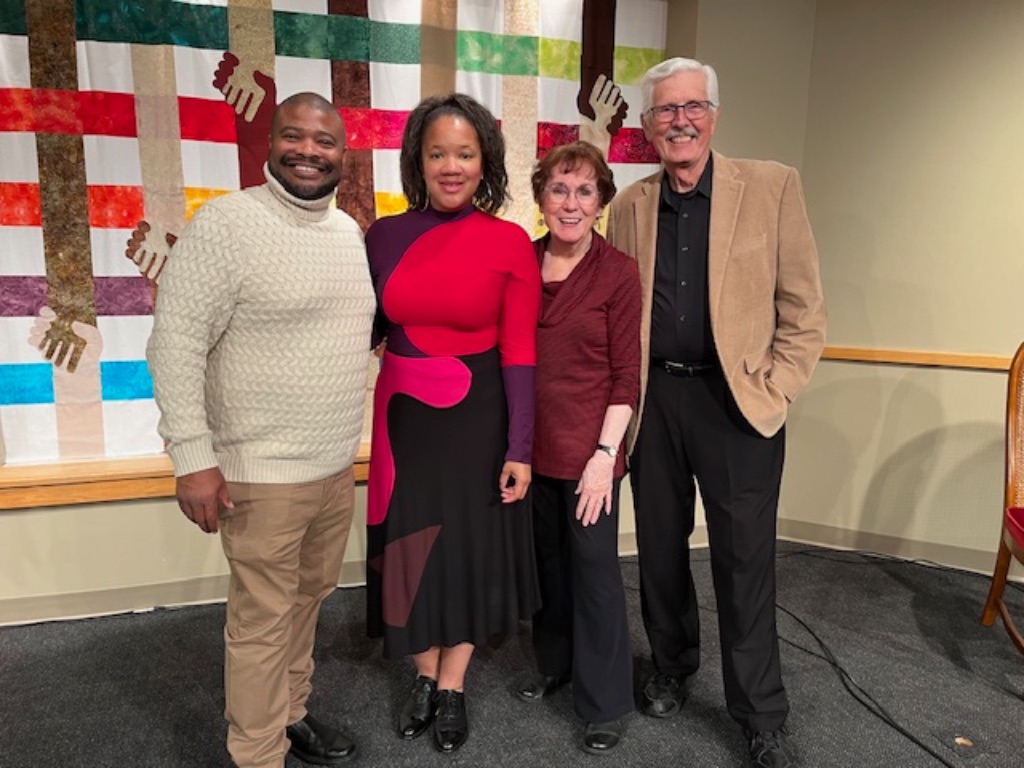
SP: What are some frustrating and rewarding moments that you’ve experienced while doing this work?
Trask: It is still early so I am sure I will have plenty of both. The most frustrating aspect thus far for me is resistance, simply because of the word reparations. I understand the word is laced with a lot of political rhetoric and can be a hot topic. However, if we get down to the core of what reparations represents, practically no one would be resistant to the idea. It is simply taking a journey to right the wrongs of our country. Not many people would expect a perpetrator of murder, rape, theft, libel, or assault to not face repercussions for their actions and for the victims to not receive justice. Ultimately, reparations is about justice for the centuries of oppression in countless forms, many of which continue today.
One very interesting discovery Ms. Simmons shared at the event was that since reparations started in Evanston, the number of people who support reparations in the city has risen dramatically. I hope that as we progress with CURC, we will see the same change in tide.
The most rewarding part is working with a group of people who are willing to learn with me and work together to promote racial justice and healing through reparations. We are just at the beginning stages with CURC but I see big things ahead.
SP: How does this organization hope to bring reparations to Champaign-Urbana?
Trask: We hope to work with every institution and individual in C-U to provide reparations through education and acknowledgement. Although only one city has made actual disbursements for reparations in the country, Robin Rue Simmons shared that over 120 government entities across the country have created resolutions and proclamations about racial justice and reparations specifically, with several already creating line items in their budgets to pay reparations in the future.
SP: What are the best ways to support the coalition?
Trask: There are a number of ways. You can join us! We meet every third Thursday at New Covenant Fellowship. You can support us by giving to the group through our website. Donations go towards other community events and actual reparations. You can spread the word, have conversations about reparations. Help us build relationships with your religious institutions, workplaces, clubs, volunteer sites, businesses, or schools. You can support politicians that prioritize reparations. You can seek out information and educate yourself about African American history and current systematic oppression. Then determine what you think about reparations based on information you discover for yourself. And finally keep an eye on our calendar so you can come to our next event.








